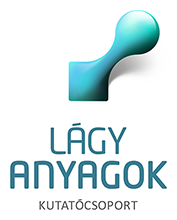Impresszum | Copyright © 2025 Budapesti Műszaki és Gazdaságtudományi Egyetem
PhD-témák
Kedves érdeklődő hallgató! Aktuális témakiírásainkat mindig megtalálod a doktori.hu weboldalon:
https://doktori.hu/index.php?menuid=139&lang=HU&sz_ID=27107&elo=1
https://doktori.hu/index.php?menuid=139&lang=HU&sz_ID=8453&elo=1
Ha felkeltette valamely terület az érdeklődésedet, bátran keress meg minket! Kérjük, e-mail-ben egyeztess időpontot velünk érkezésed előtt. Jelenlegi témakiírásainkat alább olvashatod.
Aspartic acid based polymers for controlled drug delivery (témavezető: Gyarmati Benjámin)

Polymers are widely used pharmaceutical excipients in controlled drug delivery, but several challenges can be identified such as poorly reproducible properties of natural ones or the complex synthesis and the lack of biodegradability of synthetic ones. For these reasons, poly(amino acid)s, particularly poly(aspartic acid)s and polyaspartamides have been in our focus recently due to their expected biocompatibility, structure-dependent degradability and chemical versatility.
The PhD student joining this topic will perform considerable synthetic work to prepare polymers with tailored properties by using various anionic, non-ionic and cationic groups as well as thiol and protected thiol groups by direct functionalization or by thiolactone chemistry. The polymers will be characterized basically by NMR, rheometry, mechanical and adhesion tests, degradation and drug release experiments. The polymers synthesized will be used to improve bioadhesion of the formulation for further application in controlled drug delivery on mucosal membranes. The presence of thiol groups will also be exploited to stabilize the polymers in the nano-size range and to prepare nanogels for intracellular drug delivery. The work will be done in cooperation with our partners, e.g. Institute of Molecular Sciences at University of Bordeaux, Faculty of Pharmacy at Szeged University and Biological Research Centre of HAS, Szeged.
Nanofibrous and porous scaffolds from polymers (témavezető: Szilágyi András)
The use of biocatalysis makes chemical reactions selective and environmentally friendly. Still, the industrial application of biocatalysts is often hampered by the lack of long-term operational stability and difficult recovery and re-use of the enzymes. These drawbacks can be overcome by immobilization. Nanofibrous polymer matrices and macroporous polymer scaffolds can be used to immobilize both macromolecules and cells by binding on the surface or by entrapment within the polymer matrix.
The Ph.D. student joining this topic will perform considerable synthetic work to prepare polymers with tailored properties. Functionalized macroporous polymer hydrogels will be prepared by phase separation techniques. Electrospinning techniques will be used to fabricate nanofibrous matrices, while digital light processing as a 3D printing technique will be applied for scaffold preparation. The polymers will be characterized by NMR, rheometry, microscopy, mechanical tests, etc. The biocatalytic performance of the final products will also be tested. This work will be done in cooperation with one of our partners, the Bioorganic Chemistry Research Group, BME.
Responsive poly(aspartic acid) derivatives for targeted drug delivery (témavezető: Gyarmati Benjámin)

Poly(amino acid)s, particularly poly(aspartic acid)s (PASPs) have been in the focus of Soft Matters Group for various biomedical applications due to their expected biocompatibility and chemical versatility. The responsive properties of hydrogels formed of PASP, including pH- and redox-dependent degree of swelling, makes them very attractive candidates in targeted drug delivery.
The PhD student joining this topic will synthesize polymers with tailored properties by using various functional groups and the resultant polymers and gels will be characterized by NMR, swelling and mechanical tests as well as drug release experiments. The effect of the presence and concentration of anionic, cationic, non-ionic and redox-sensitive groups on the stability, gel formation and responsive properties will be analysed in detail. Polymers will be utilized in the nano-size range for potential application in intracellular drug delivery. Various methods will be tested to reach the nano-size range including the synthesis in water-in-oil miniemulsion and micelle formation. Nanogels will be characterized by dynamic light scattering and zeta potential measurements and their potential uses will be demonstrated by encapsulation and release of model drugs. The work will be done in cooperation with our partners, e.g. Institute of Molecular Sciences at University of Bordeaux, Faculty of Pharmacy at Szeged University and Biological Research Centre of HAS, Szeged.


